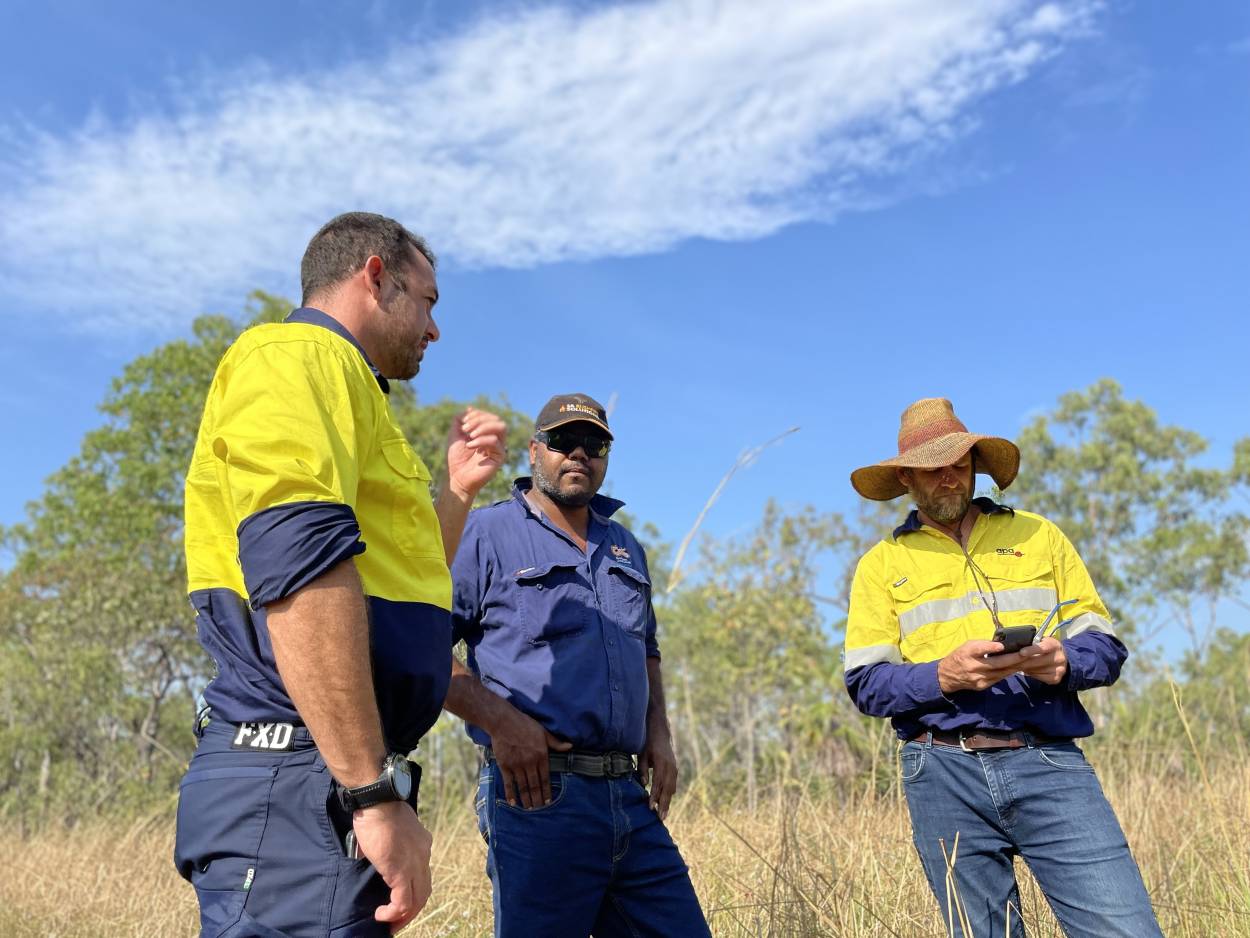A pipeline to caring for country
Date: Aug 2, 2022
Publication Type: Blog
Aboriginal rangers play a critical role in restoring and maintaining traditional lands and seas, getting rid of feral animals and weeds, and protecting endangered species.
But they also play a vital role in maintaining more industrial aspects of the Northern Territory: just ask the Bulgul and Kenbi rangers.
Stretching across the Northern Territory are two major pipelines, the 1,512 kilometre Amadeus pipeline and the 287 kilometre Bonaparte line. They are major components of the Territory’s infrastructure.
But they need looking after, and this is where our rangers come into the picture, inspecting Top End gas corridor pipelines, which stretch about 1,200km across the NLC region.
Back in 2019, gas pipeline owner APA Group approached the NLC and CLC with a proposal to engage rangers to conduct Gas Pipeline Easement Corridor Conditions Inspections on the Amadeus and Bonaparte Gas Pipelines on a fee-for-service basis.
After NLC rangers successfully completed that first project, APA again approached the NLC to undertake a second inspection of the gas corridor pipelines in 2022.
Rangers from the Kenbi and Bulgul groups worked on country throughout May and June inspecting the gas corridor pipelines.
Kenbi Ranger Coordinator Steven Brown said the Kenbi and Bulgul Rangers had an “awesome experience” working on the APA gas easement this dry season.
NLC Bulgul ranger Bernie Lewis on the job with APA trainers Ben Riley and Nathan Kirby.
“The two teams gained valuable experience in mapping using I Pads and hand held Garmin GPS units. APA also supplied paper maps, which were extremely handy,” he said.
“Rangers communicated with stakeholders ahead of visits to their properties.
“The work whilst not too hard, the days were very long and slow going.
“Some days on the easement we travelled between five to 10km per hour with the vegetation very thick and high.
“The work was enjoyable because we learnt something new every day.
“The terrain south of Katherine was certainly different to what we are used to working on in the tropics.
“Both Ranger groups would certainly take up any future opportunities offered by APA.”
The rangers used the Field Maps application on tablets to identify corridor issues that may affect accessibility or clear delineation of the corridor. This includes erosion, vegetation obscuring access or line of sight, and missing or damaged signage.
As part of this work, the rangers have also been undertaking weed surveys led by APA’s Environment and Heritage team as part of their national approach to document the presence of declared weeds. This will enable appropriate controls to be put in place to manage priority weeds and limit their spread.


